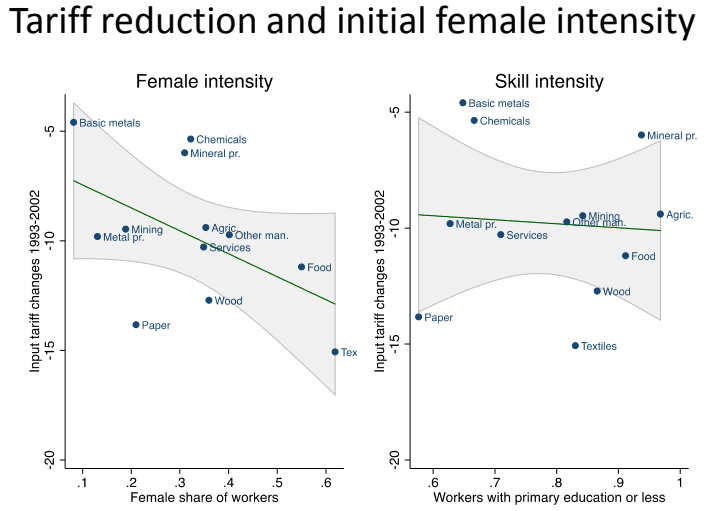Robert Sparrow (Wageningen University) presented his paper at the FKP Seminar hosted by the Ministry of National Development Planning (Badan Perencanaan Pembangunan – BAPPENAS) on 12 September 2017 in Jakarta. the paper explores the impacts of international trade on one of the most discussed social aspects i.e. gender. It is a particularly relevant topic since many people in Indonesia had enjoyed better standard of living compared to the past and, hence, now turn their attention towards issues beyond physical welfare. The paper is entitled “Globalization and Social Change: Gender-specific Effects of Trade Liberalization in Indonesia.”
While the study of the impacts of international trade on worker’s welfare has been focused predominantly on the gap between low-skilled and high-skilled workers, little is known about the role of international trade in shifting the pattern of relatively unequal wage and job opportunity experienced by female workers. Sparrow and other researchers in this study were motivated to fill the research gap, with Indonesia as the object of the study since the country has been consistently reducing import tariff since early 1990s. Using census and tariff exposure data from Statistics Indonesia and UNCTAD-TRAINS, the study investigated the presence of such impact on the labor market structure in 259 districts in Indonesia from 1993 to 2002.
Tariff reductions on locally used intermediate goods apparently help business owners to increase their profits and sales. More jobs become available and the wage gap is getting closer. Concomitantly, more females participate in the labor market, leaving house works to domestic workers or sharing the role with male(s) in the household. The effect is largely experienced by low-educated female workers, who mainly work in the manufacture sector captured in the data. Higher working hours also lead female workers aged 20-29 to postpone marriage since females are now more able to support themselves. Sparrow also stated that the potential mechanism that let such phenomena to occur perhaps has something to do with the expansion of female-intensive sectors and growing business competition as parts of the consequences of reduction in input tariff.
Seminar participants seemed to be very critical towards this issue as many of them raised interesting and relevant questions. Several participants expressed their concerns about the lack of study context regarding crisis factor that jolted Indonesian economy hard in 1998 that might have specific effect on the labor market structure. Other participants questioned the possibility that lower wage for female workers encouraged the expansion of female labor-intensive sectors rather than trade liberalization as proposed in this study. The moderator also suggested studying further the possible impact of digitalization, which might lessen the relevancy of tariff reduction in influencing Indonesian labor market structure. For complete presentation and Q&A session, please refer to our video.





